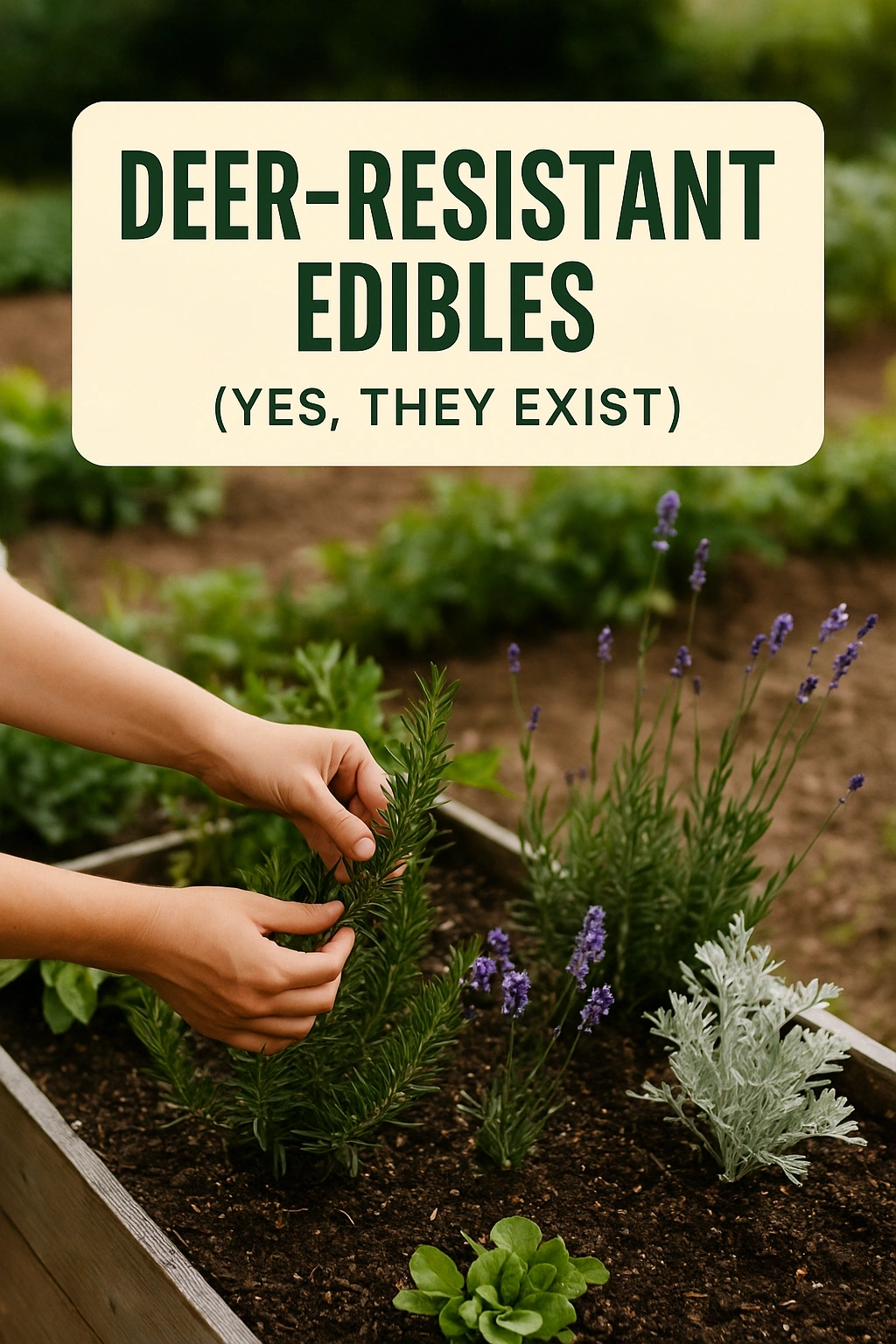
Gardening enthusiasts often face a common adversary: deer. These graceful creatures can wreak havoc on a garden, particularly when it comes to tender, edible plants. However, there are indeed varieties of edible plants that are known for their resistance to deer. In this article, we will explore the world of deer-resistant edibles, providing you with practical tips and insights to help you cultivate a thriving garden without constant worry about deer damage.
What Makes Plants Deer Resistant?
Deer tend to avoid certain plants due to their taste, smell, or texture. Many deer-resistant edibles contain compounds that are unappealing to deer, such as strong scents or bitter flavors. Additionally, some plants have tough or prickly leaves, making them less palatable. Understanding these characteristics can help you select the right plants for your garden.
Top Deer Resistant Edible Plants
When planning a garden, consider incorporating the following deer-resistant edibles. These plants not only offer delicious harvests but also stand a better chance of surviving in a deer-populated area.
1. Herbs
- Rosemary: This aromatic herb has a strong scent that deer typically avoid.
- Thyme: Thyme’s robust flavor and aroma make it unappealing to deer.
- Lavender: While primarily known for its fragrance, lavender is also a culinary herb that deer tend to steer clear of.
2. Berries
- Blueberries: These sweet treats are often overlooked by deer, especially when planted alongside more appealing options.
- Blackberries: With thorny canes, blackberries are less likely to be munched on by deer.
- Raspberries: Similar to blackberries, raspberries offer both tasty fruit and a physical barrier that deters deer.
3. Vegetables
- Garlic: Its pungent aroma can repel deer while providing flavor in the kitchen.
- Onions: Like garlic, onions are unappealing to deer due to their strong scent.
- Asparagus: This perennial vegetable is not only deer-resistant but also a healthy addition to any diet.
4. Miscellaneous Edibles
- Rhubarb: This unique plant is not only deer-resistant but also versatile in cooking and baking.
- Artichokes: Their spiky leaves can deter deer while producing a gourmet treat.
- Hot Peppers: The heat from peppers makes them unenjoyable for deer, while providing a kick to your dishes.
Creating a Deer-Resistant Garden
Incorporating deer-resistant plants is just one strategy for protecting your garden. Here are additional tips to create an environment that discourages deer:
1. Plant Selection
Choosing the right plants is crucial. Incorporate a mix of deer-resistant edibles alongside other plants to create a diverse garden. This diversity can confuse deer and make them less likely to target specific plants.
2. Physical Barriers
Installing fences or barriers can be an effective way to keep deer out. A fence should be at least 8 feet tall to deter most deer, as they are excellent jumpers. If a full fence isn’t feasible, consider using netting or garden fabric around particularly vulnerable plants.
3. Scent Deterrents
Utilize natural scent deterrents to keep deer at bay. Spraying a mixture of water and strong-smelling ingredients such as garlic or hot pepper can create an unwelcoming environment for deer. Reapply these solutions regularly, especially after rain.
4. Companion Planting
Companion planting involves growing certain plants together for mutual benefit. Some plants can repel deer while others attract beneficial insects. For example, planting marigolds near your vegetables can distract deer with their scent while enhancing your garden’s health.
Common Myths About Deer and Plants
Many misconceptions surround deer behavior and plant preferences. Understanding these myths can help gardeners make informed decisions.
1. Myth: All Deer Love Vegetables
While deer will eat many vegetables, they are selective eaters. Many will avoid strong-flavored or aromatic plants. This selectivity is why some gardeners succeed with certain edibles while others fail.
2. Myth: Deer Won’t Eat If They’re Full
Deer have a diverse diet and will eat almost anything if they are hungry enough. However, they often prefer certain plants over others, which is why it’s important to choose deer-resistant varieties.
3. Myth: Deer Are Only Active at Night
While deer are crepuscular, meaning they are most active during dawn and dusk, they can be active during the day as well. This behavior can make it challenging to predict their feeding times and protect your garden effectively.
FAQs
What are some signs that deer are visiting my garden?
Look for tracks, droppings, and chewed leaves on your plants. Deer often leave scrapes on tree trunks or nearby foliage as well.
Can I use repellents to keep deer away?
Yes, both commercial and homemade repellents can be effective. Ingredients like garlic, hot pepper, and vinegar can deter deer when sprayed on plants.
Are there any plants that deer will always eat?
Deer are particularly fond of tender annuals and certain vegetables, such as lettuce, young fruit trees, and ornamental flowers. However, preferences can vary based on local deer populations and available food sources.
How can I attract beneficial wildlife while deterring deer?
Planting native species that attract birds and beneficial insects can help maintain a balanced ecosystem while keeping deer at bay. Consider using plants with strong scents or thorny structures.
Is it possible to have a completely deer-proof garden?
While no garden can be entirely deer-proof, using a combination of deer-resistant plants, physical barriers, and repellents can significantly reduce damage and protect your edible garden.
In conclusion, with careful planning and the right plant selections, you can cultivate a garden that thrives despite the presence of deer. Embrace the challenge and enjoy the rewards of gardening with deer-resistant edibles.
